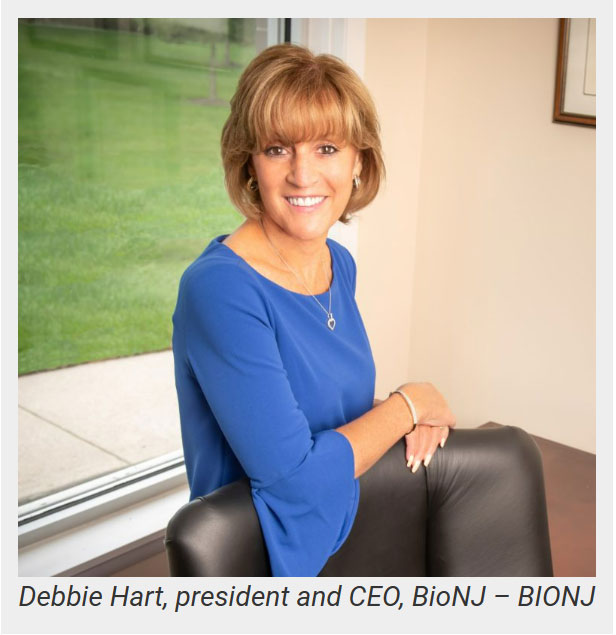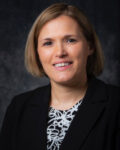We have been mentioned in NJBIZ as a growing CRO
New Jersey is known as a pharmaceutical powerhouse, but behind the scenes, biotechnology, medical device and pharmaceutical companies depend on clinical research organizations or contract research organizations to conduct clinical trials and research support services.
 “The combination of the large presence of industry and a dense and diverse patient population make New Jersey an ideal place for CROs to do business,” according to Debbie Hart, president and CEO at BioNJ, a New Jersey life sciences trade association. “There are approximately 3,200 active clinical trials taking place today in New Jersey.”
“The combination of the large presence of industry and a dense and diverse patient population make New Jersey an ideal place for CROs to do business,” according to Debbie Hart, president and CEO at BioNJ, a New Jersey life sciences trade association. “There are approximately 3,200 active clinical trials taking place today in New Jersey.”She noted that clinical trials “are the critical process through which drug approvals happen and patients get the therapies and cures they need. CROs provide biopharma companies with a wide range of services throughout the clinical trial process, making it easier, more efficient and cost effective for companies to test their drugs for safety, efficacy and potential adverse reactions. CROs play a critical role in the clinical research process – from providing access to patients and reviewing safety data from trials to assisting in clinical trial site selection and oversight to regulatory submissions.”
At the same time, Hart added, “Technology, AI and machine learning are increasing the capacity and efficiency in identifying and categorizing patients and patient data, accelerating the clinical research process and ultimately bringing new therapies to patients faster and more efficiently.”
“As a contract-research company we are able to provide a wide variety of services, which, in addition to our proprietary technology, attracts many of our pharma clients because they either do not have the ability, the time, or find it more cost-effective to outsource their project,” according to Michael Johnson, CEO and co-founder of Visikol, a CRO that specializes in advanced cell culture assays and advanced tissue imaging. The 30-employee organization has worked with leading pharmaceutical companies, including Pfizer and Bristol Meyers Squibb, according to Johnson.
“At Visikol, our goal is to accelerate the drug discovery and development process through advanced tissue imaging and advanced cell culture services,” he added. “Our acquisition of HUREL Micro Liver Models [in 2021] distinguished us as having the broadest suite of liver cell culture models in the field, and we have recently developed a novel Blood Brain Barrier assay.” An assay is a laboratory test to find and measure the amount of a specific substance, according to the National Cancer Institute.
“Additionally, we offer researchers the chance to move beyond traditional slide labeling and imaging through our Multiplex Imaging Services, with offerings such as Immunofluorescent labeling and Imaging Mass Cytometry,” Johnson said, referring, respectively, to a technique for labeling a specific biological target within a sample using an antibody, and a technology that enables researchers to accurately assess activity within tissue’s microenvironment.
After helping to shepherd the company from its 2012 origins as a Rutgers University startup to a thriving standalone enterprise, Johnson in 2021 oversaw the sale of Visikol to CELLINK, part of a family of companies owned by BICO, a life science solutions and laboratory automation company listed on the Mid-Cap, Nasdaq Stockholm stock exchange. “Being acquired by BICO allowed us the ability to grow at a much faster rate than if we had tried to do it on our own,” said Johnson. “The support from the BICO team has been very valuable, and we just recently announced a commercial integration with what was one of our sister companies, MatTek. This was a very exciting move for Visikol, and we are excited to take this next step.”
A New Brunswick-based CRO with about 60 employees, Vitalief, is also making waves with medical heavyweights like Rutgers Cancer Institute of New Jersey and its partner RWJBarnabas Health. Vitalief develops and delivers research and clinical trial solutions for the health care organizations and is seeking to expand its roster of clients.
 “We started in December 2021 with a primary focus on assisting CINJ and RWJ Barnabas with oncology clinical trials,” according to Vitalief CEO and Chairman David Moore. “Since then, we’re looking into expanding to additional medical solutions, and we’re currently in talks with the MD Anderson Cancer Center, Thomas Jefferson University and other organizations. It makes sense for them to leverage our per-diem employees, since the client organizations can easily scale up or down according to their needs, and Vitalief is more than a staffing agency — we partner with clients, consulting and advising them so we have a thorough understanding of their needs. And because we offer a career path to our hires, they tend to stay with us longer; the average attrition rate in the industry is 30% after 18 months, which can be disruptive when you’re trying to run multiple clinical trials.”
“We started in December 2021 with a primary focus on assisting CINJ and RWJ Barnabas with oncology clinical trials,” according to Vitalief CEO and Chairman David Moore. “Since then, we’re looking into expanding to additional medical solutions, and we’re currently in talks with the MD Anderson Cancer Center, Thomas Jefferson University and other organizations. It makes sense for them to leverage our per-diem employees, since the client organizations can easily scale up or down according to their needs, and Vitalief is more than a staffing agency — we partner with clients, consulting and advising them so we have a thorough understanding of their needs. And because we offer a career path to our hires, they tend to stay with us longer; the average attrition rate in the industry is 30% after 18 months, which can be disruptive when you’re trying to run multiple clinical trials.” Cutting overhead
Chemo Dynamics is another CRO that caters to a wide range of large pharmaceutical companies like Johnson & Johnson, Pfizer and others. Chemo Dynamics owner and CEO Subir Chakraborty said large, medium and smaller pharmaceutical companies keep coming back to the 50-year-old CRO for reasons like speed, quality, integrity and price.
“The big companies are cutting down overhead, so they want to contract out some services to less-expensive providers, often CROs like us,” he explained. “We have experienced employees, and we can deliver high-quality medicinal and other chemical- and drug-development products at a competitive price. We keep our overhead low by outsourcing services such as IT, payroll processing and accounting and other non-core needs, so we can focus on doing chemistry in a limited number of core specialties with our enabling technologies to deliver critically differentiated products and services, so our prices are lower.”
Chakraborty also keeps costs low by carefully managing his debt load. “I joined Chemo Dynamics in 2009, when I purchased the then-struggling company,” he said, adding that he “transformed the company by upgrading the facility with GMP [Good Manufacturing Practice system] and upgraded the QC [Quality Control], which is the heart of our CRO. I paid most of the expenses out of pocket until we turned around our CRO operation – by cutting costs and bringing in more business – and became profitable by 2011. The only debt we currently have is a mortgage on our 5-acre Sayreville property. Everything else is paid from cash flow.”
Chemo Dynamics is another CRO that caters to a wide range of large pharmaceutical companies like Johnson & Johnson, Pfizer and others. Chemo Dynamics owner and CEO Subir Chakraborty said large, medium and smaller pharmaceutical companies keep coming back to the 50-year-old CRO for reasons like speed, quality, integrity and price.
One client, he noted, was an emerging U.S.-based biotech company “focused on developing innovative therapies for oncology, metabolic diseases and neurodegenerative diseases. They engaged us to develop an economical synthetic component for a diabetes drug, and Chemo Dynamics created a scalable, sustainable and robust process to improve the efficacy of the product. Our client eventually sold the rights to a big pharma company for more than $300 million.”
Chemo Dynamics is another CRO that caters to a wide range of large pharmaceutical companies like Johnson & Johnson, Pfizer and others. Chemo Dynamics owner and CEO Subir Chakraborty said large, medium and smaller pharmaceutical companies keep coming back to the 50-year-old CRO for reasons like speed, quality, integrity and price.
Chakraborty said that moves by the federal government to reduce drug costs, like a recently passed cap on the price of insulin, are driving even more business to CROs. He anticipates more M&A among CROs as they handle an increasing number of interdisciplinary projects.
Chemo Dynamics is another CRO that caters to a wide range of large pharmaceutical companies like Johnson & Johnson, Pfizer and others. Chemo Dynamics owner and CEO Subir Chakraborty said large, medium and smaller pharmaceutical companies keep coming back to the 50-year-old CRO for reasons like speed, quality, integrity and price.
“In June, we plan to complete another company acquisition and hire more employees, almost doubling our size to 20 people,” Chakraborty detailed. “We are also developing a few proprietary products, for example, an adjuvant that pharmaceutical companies can use in their COVID vaccine formulation that will let them safely store the vaccine at a higher temperature, instead of the super-low temperatures currently required. Initiatives like this will enable us to offer even more value to clients, and I believe CROs that do not follow this approach will be left behind.”
Rutgers University gives a lift to CRO startups
Staffed by scientists and IP experts with industry experience, the Innovation Ventures team at Rutgers University is dedicated to transforming research at Rutgers into products, services and partnerships for the public good, generating value for the university and the state. NJBIZ spoke with acting Executive Director of Innovation Ventures Deborah Perez-Fernandez about the organization’s activities.

NJBIZ: How do you help CRO wannabes to succeed?
Deborah Perez-Fernandez: Academia has a crucial role in fueling the startup ecosystem. We nurture and stimulate innovation with in-depth knowledge and our experts’ skills. The Innovation Ventures unit at Rutgers Office for Research, the technology transfer department for the university, encourages deliberate innovation, protects and leverages Rutgers’ intellectual property, fosters collaboration with industry, and enables entrepreneurship. Our team of experts guides innovators from proof-of-concept through Intellectual Property protection, including patents, copyrights, trademarks, licensing and commercialization.
Q: Your team helped Visikol; what are some other CROs you helped to launch?
A: We also assisted Infinite Biologics, which was part of the Rutgers’ Human Genetics Institute of New Jersey, a world-class university-based cell and DNA repository (RUCDR). It was founded by Distinguished Professor Dr. Jay A. Tischfield in 1999, to better understand the genetic causes of common and complex diseases, as well as discover diagnoses, treatments, and cures for them. The Office for Research provided financial and administrative support, which helped them grow.
In April 2020, during the COVID pandemic, RUCDR Infinity Biologics (which then became Infinity BiologiX LLC or IBX and is now known as Sampled) pioneered the world’s first coronavirus saliva test. The lead creator of the saliva test, the late Andrew Brooks, led the creation of the Rutgers saliva test while serving as chief operating officer and director of technology development at RUCDR Infinite Biologics. The saliva test received the first FDA [U.S. Food and Drug Administration] Emergency Use Authorization to enable its use to detect the presence of the SARS-CoV-2.
Q: What are your plans for the Rutgers Innovation Ventures team?
A: We will continue supporting the research, scholarship and creative endeavors of all Rutgers faculty by convening academic and research leaders, providing integrated, user-focused resources, services and tools, and partnering with faculty members and their teams. Our staff runs workshops and helps Rutgers innovators protect and commercialize their intellectual property.
Over the past fiscal year, Rutgers research has translated into more than 200 U.S. and global patents, 80 license agreements and eight new startups formed. Our licensing revenue exceeds $12 million annually and our active technology portfolio represents a wide array of academic fields and disciplines.
